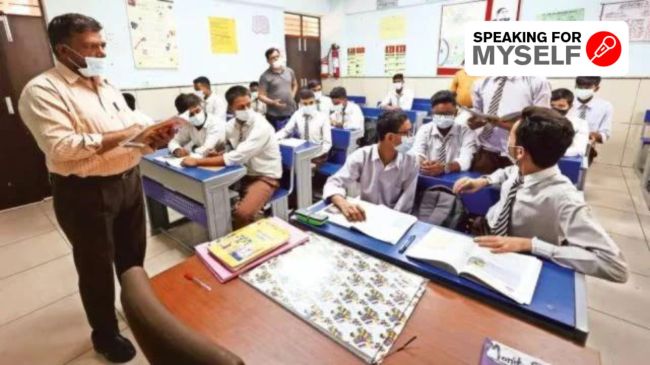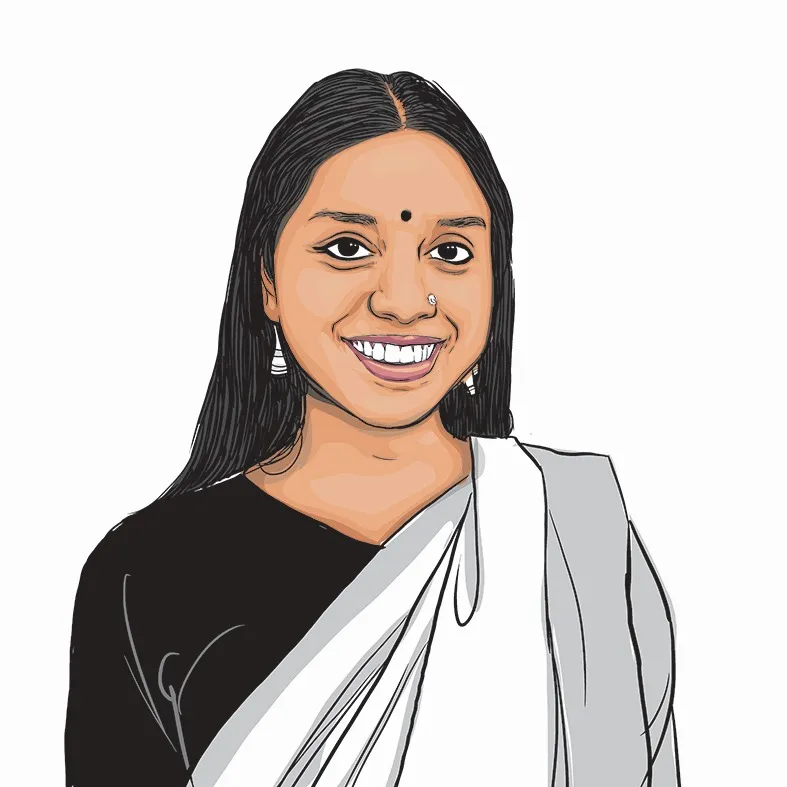Opinion I am a school teacher. Why does that mean I have to stop learning?
Ensuring an environment where students can develop holistically is, of course, at the core of education. However, for this, there need to be avenues for teachers to come together, discuss and present their own intellectual ideas, collaborate and expand their subject knowledge.
 One reason may be the structure of school activities. Intra and inter-school events are always geared towards students' development and recreation. (Express Photo by Pavan Khengre/Representational)
One reason may be the structure of school activities. Intra and inter-school events are always geared towards students' development and recreation. (Express Photo by Pavan Khengre/Representational) Having taught at two schools, and currently working at my third, I have been exposed to various pedagogical styles, philosophies and educational boards. I entered the field straight after completing my Masters, and this article explores a strain I have felt since making the decision – the relationship between teacher development and subject domain knowledge. I was told by many people that teaching should not be seen as a profession for someone who has academic potential. That teaching implies stagnation of intellectual growth. And mind you, this advice came from teachers as well. Why does this notion persist even within elite private schools where there is always a push towards experimentation and improving teaching methodologies? It is not that upskilling does not take place in schools. However, most workshops are geared towards alterations and innovations in teaching methods and assisted tasks. Teachers are not the prime benefactors, and the benefit is always directed towards the eventual stakeholders — students, while teachers are the vehicles. There is a thrust towards teacher development but not individual intellectual growth.
One reason for this phenomenon may be attributed to the structure of school activities. Intra and inter-school events are always geared towards students — their development and recreation. Teachers then are curators and organisers of student experiences, which, I admit, is at the very core of education — to ensure a learner-centric environment where they can develop holistically. But for this, and therefore along with this, there also should be avenues for teachers to come together, discuss and present their own intellectual ideas, collaborate and build on their subject knowledge. Conferences for teachers with paper presentations, symposiums and panel discussions by experts in the respective fields could be some ways to implement this idea. Because yes, we are teachers, but also mathematicians, artists, performers, sociologists. Why must our own subject development stop with entering school teaching?
Even though teachers may not be pursuing further education, they do deserve to exhibit and develop their theoretical capabilities, and be part of programmes that push them to engage more deeply with their domains. One way is for academics to consciously try and open its arms towards these untapped reserves of knowledge. Schools themselves could also take the onus to organise such events. Perhaps more realistically, as teachers accompany students for competitions to other schools, there can be a component organised for teachers — to present or discuss pertinent issues, topics related not just to education and teaching, but also their subjects. There could even be magazines or academic journals where teachers could share papers and articles. University professors commonly engage in active publishing and presenting alongside their teaching responsibilities. Perhaps this ethos could be inculcated at the school level as well, at least amongst those willing and excited.
This idea calcified after attending the annual History for Peace conference organised by the Seagull Foundation for the Arts at Shiv Nadar School in Gurgaon last year. I gained access to a new workshop experience where teachers, along with students, were able to attend talks by historians, authors and others on the topic of “justice”, and be a part of workshops being held for students and teachers separately. There was an amalgamation of knowledge acquisition as well as teacher training. Of course, students were at the centre — teachers were meant to accompany the students, yet they were not just caretakers, but a part of the experience. This prompted me to question why there are not more workshops of this nature, perhaps even with a primary focus on teachers.
The benefits of such practices are also undeniable for students. To have intellectually stimulated teachers with updated subject knowledge will inspire students to engage more deeply and critically with their disciplines and learn about wider applications of the concepts being studied. Teachers can aid in stimulating a learning environment where rote learning takes a backseat to analysis, interpretation and applying knowledge in new contexts. This is especially pertinent in the move towards open book examinations.
These suggestions might be too ambitious for some, or perhaps too banal for others. I hope this article becomes a way to initiate a conversation around this topic, and if such avenues already exist, then I look forward to hearing about, and being a part of them.
The writer teaches Sociology at Vasant Valley School, New Delhi






